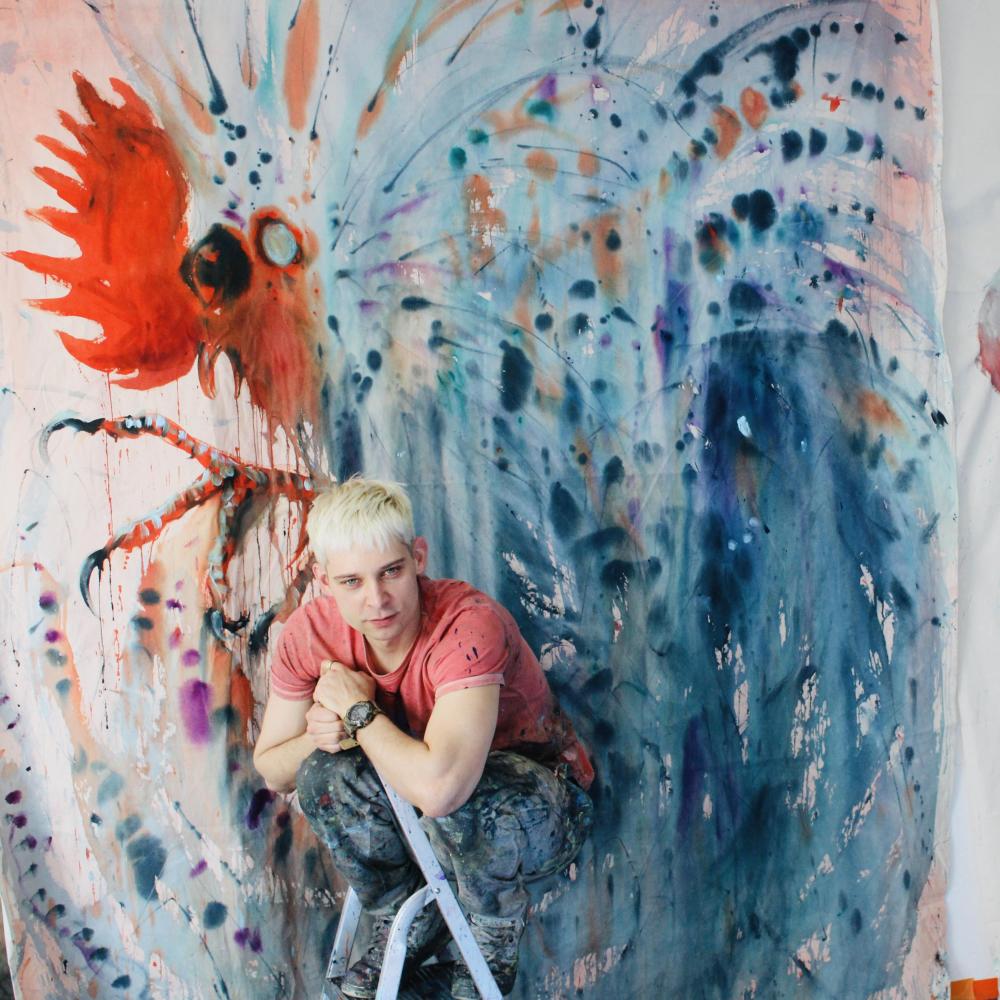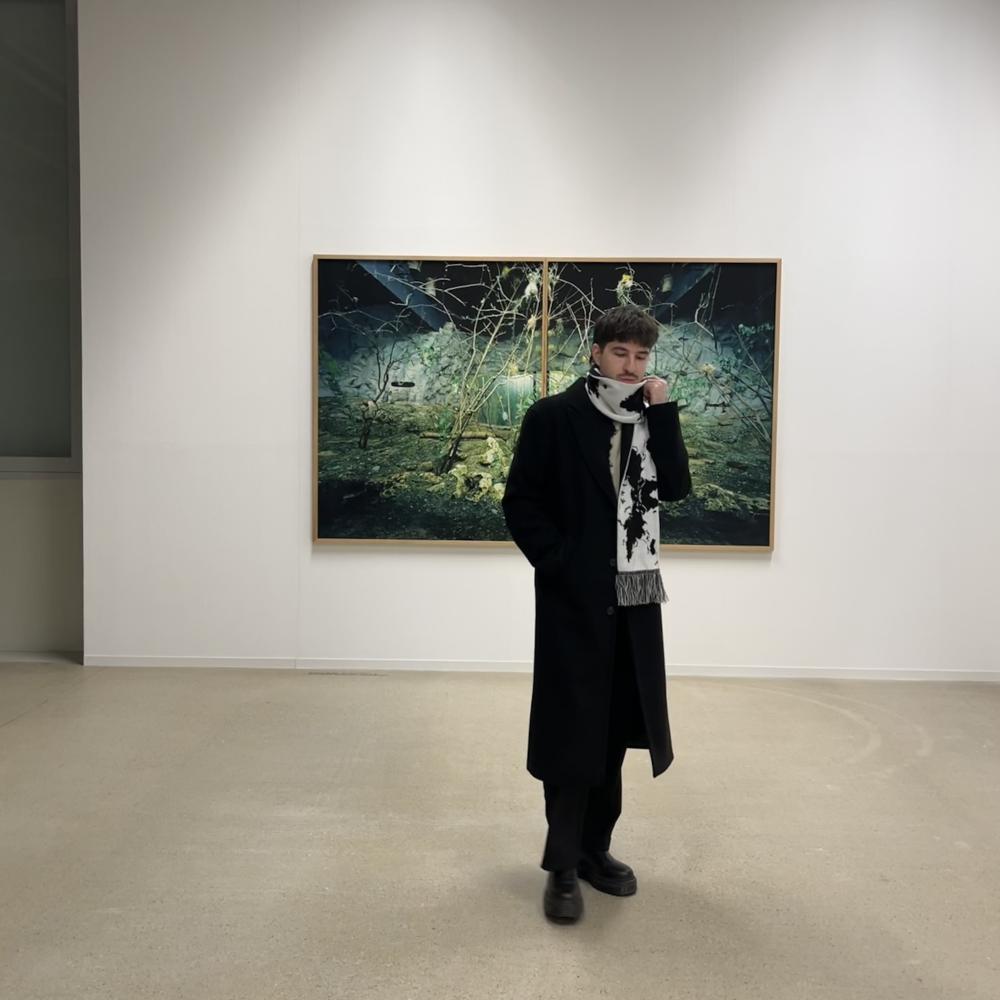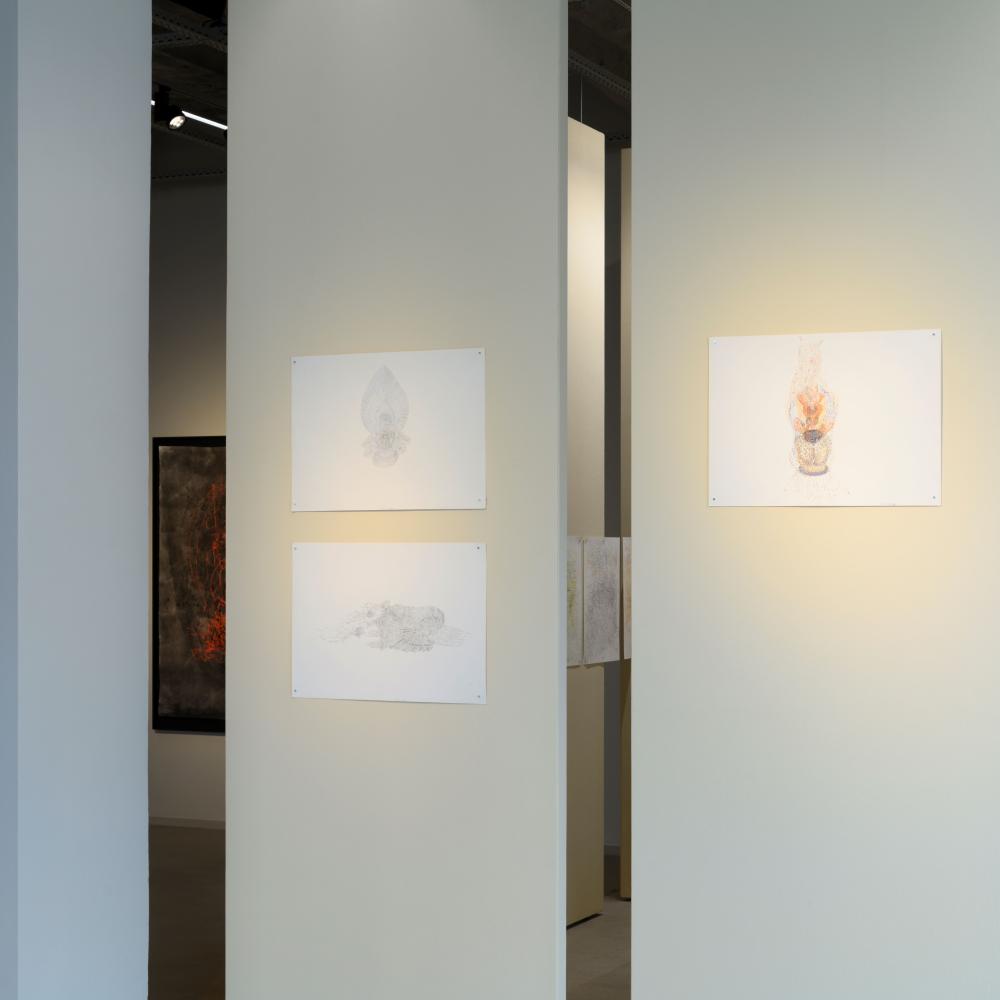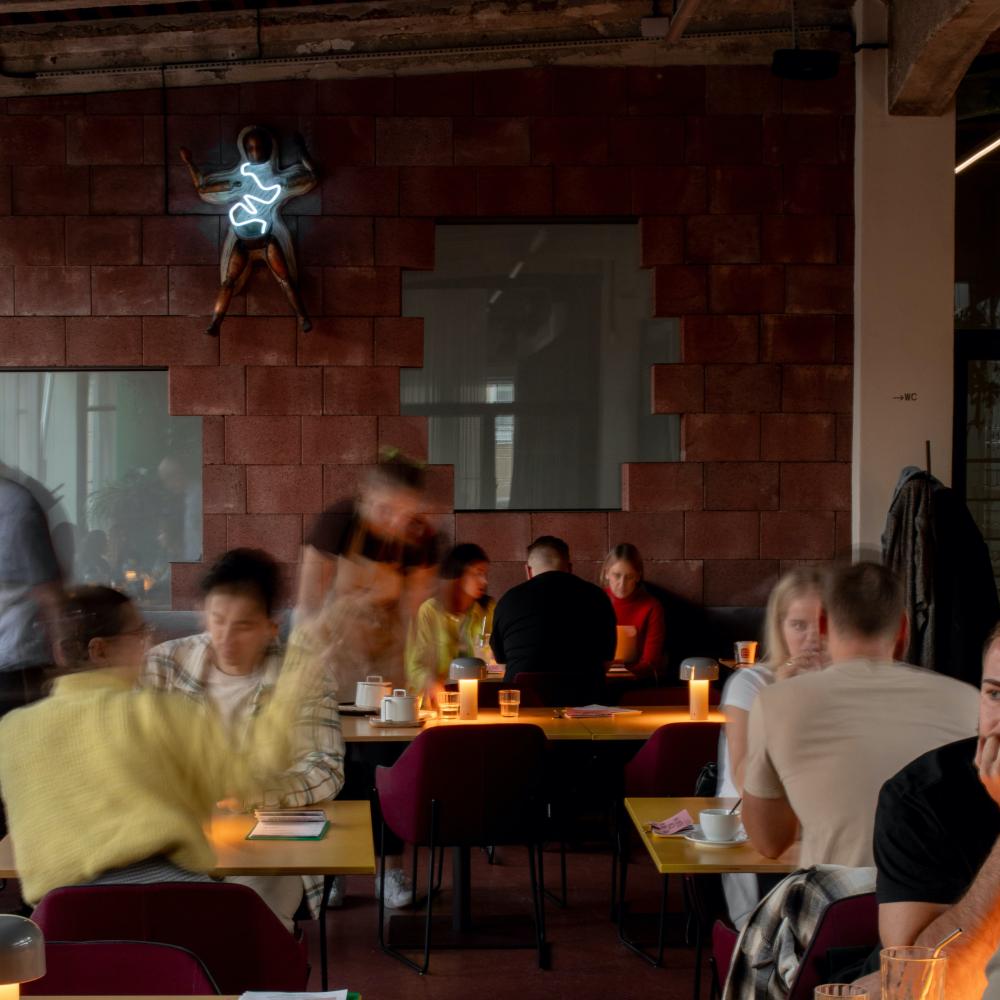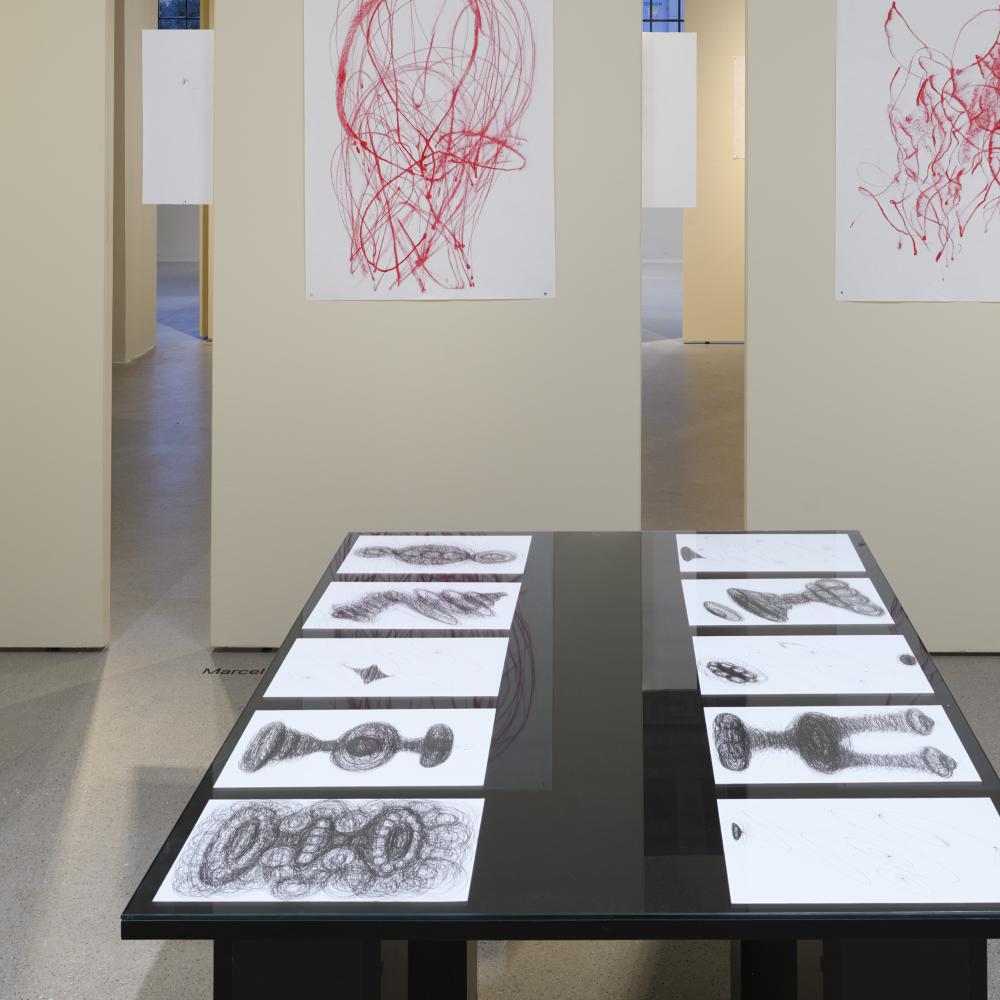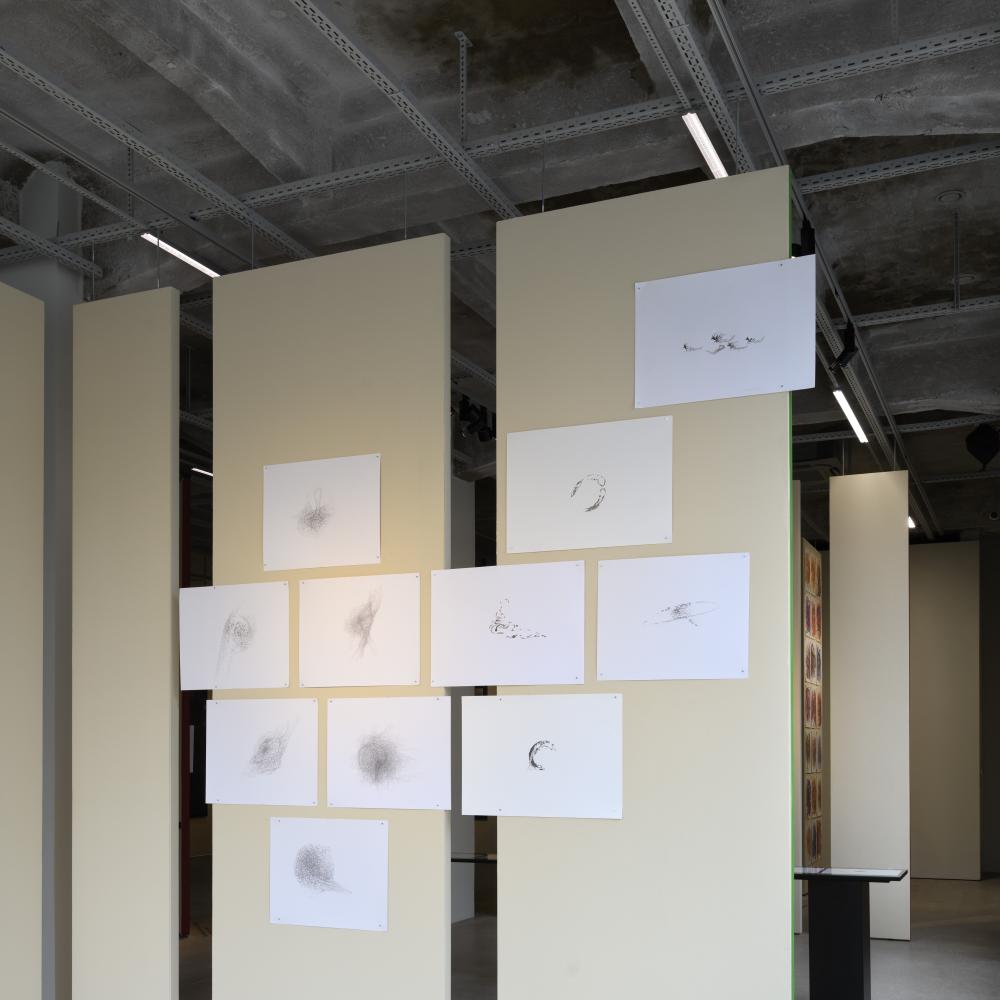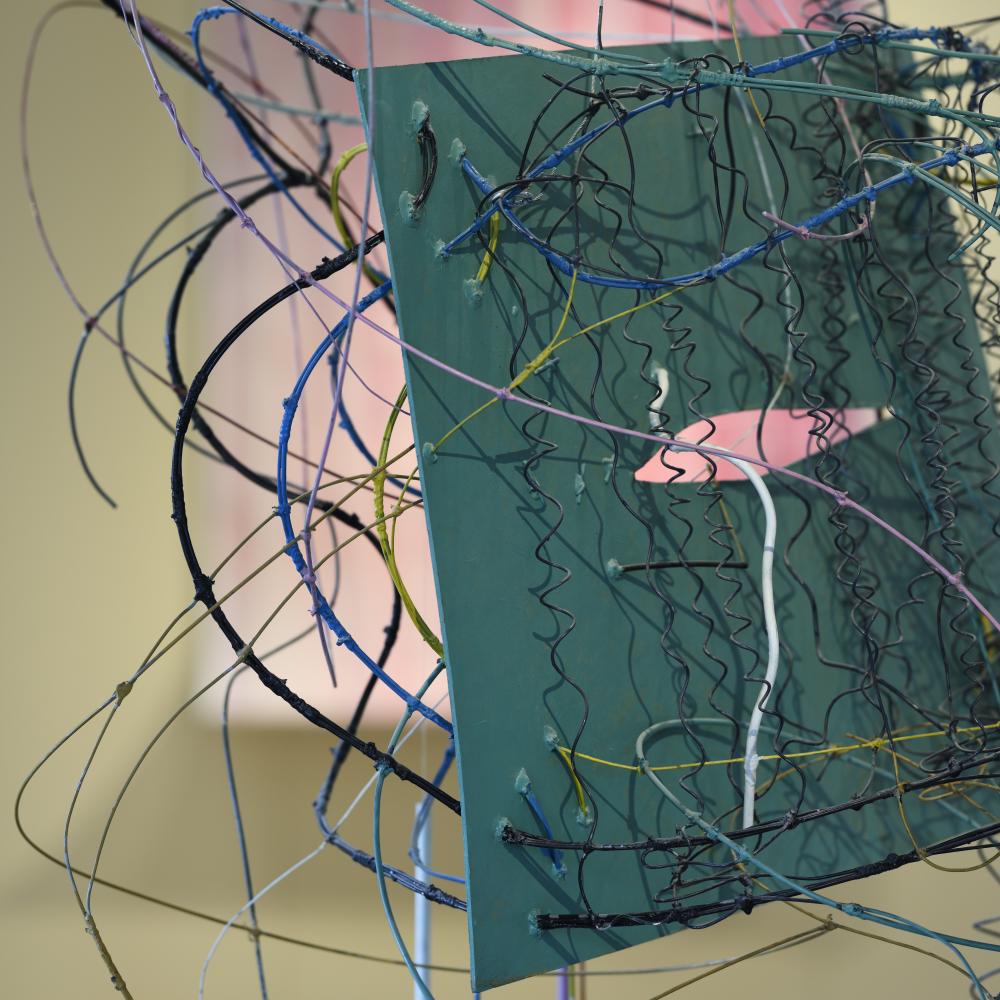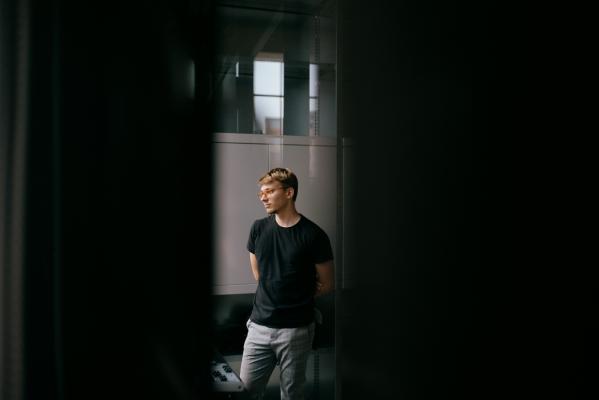
Telegraph insight: Interview with Jakub Kraus
Jakub Kraus talks about his beginnings and vision, combining student life and his work as a dramaturg, and how he manages to organise cultural events in the current pandemic.
You are currently finishing your studies at the Department of Theatre and Film Studies at Palacký University in Olomouc. How did you get into production and dramaturgy while studying?
At the time when I started university three years ago, I was simultaneously preparing the concept for the SEJF arts festival in my hometown of Teplice. The first edition took place in 2018 and the second one followed a year later. I found myself attracted to organizing cultural events. Moreover, the university gave me the opportunity to further my education and develop my interest in cultural management. Which actually led me to working at the Telegraph as well.
By what key do you compile the programme for the Telegraph?
It's a mix of everything. I try to follow current trends, but at the same time put lesser-known artists on the programme and create a balance between genres and media. Which means I try to make sure we have art or cult films, but also different workshops, stand-ups, theatre or concerts by well-known and lesser-known artists. There's more or less no key, it's very intuitive and I follow what catches my eye at the moment.
Do you think that a similar programming line-up is something different within the Olomouc scene?
In the field of live culture, the Telegraph is still finding its way in a way. We try to make a compromise between "high" culture, although I don't like the term much, and a culture that is more accessible but not tabloid.
So do you think it's possible to organically combine both?
It certainly can. Under the standard regime, we ran three events a week, so each one can be for a slightly different type of audience. In general, our motto is about bringing together, whether it's business and art or bringing together different groups of people with different tastes.
Could you elaborate on how the current pandemic situation is affecting your work? Are there any events that you've had to postpone?
It's quite complicated. A lot of things can't be done online. Likewise, we've had to postpone larger events indefinitely because it's quite difficult to organise them as an (unpaid) online stream. Besides the technical limitations, there are also personnel constraints in terms of the number of people and how they interact - a lot of performers are not able to meet even with each other.
Do you think state support works?
In my opinion, state support is insufficient at the moment. But we are about to learn the terms of the COVID: Culture III program. So we will see how, for example, cinemas, cultural entrepreneurs, but also people from the audiovisual industry will be able to get support.
In addition to the Telegraph, you're also involved in the The Stacker project. Is there anything specific about the cultural scene there?
Zahálka is a cultural centre being created by former students of the Teplice high school. So we are creating a background for like-minded people. It's a small space, and we take inspiration mainly from the history of various housing seminars or theatres. We do it mainly for others, but partly for ourselves. The scene in North Bohemia is definitely specific and in Teplice in particular you can see that there is no university involved. On the other hand, there is a university in Ústí nad Labem, where there is also a Faculty of Art and Design, which is quite beneficial to the local cultural life. There are some interesting cultural projects in Teplice, but in general we are facing an outflow of young people. It is still to some extent a neglected region and overall support could certainly be higher here. Fortunately, after the last elections, the political composition of the region has changed a bit, so we will see how the situation develops.
Do you think the university is indispensable to Olomouc in this respect, or to the Telegraph itself?
Sure. Actually, we haven't had much of a chance to showcase ourselves to the students yet, as we started the programme at the end of July and our last event with a live audience was on 12 October. But our visitors are not only students. The Telegraph's audience is also middle-aged people and basically anyone who is around and interested in culture.
What can we look forward to at the Telegraph in the coming weeks? And what would you like to focus on in the future?
We're planning to step out of the Olomouc milieu a bit again and invite artists from all over the country. I would also like the Telegraph to start entering more public space. The plan is to do some original work and in the future also our own festival. What it will be about, I won't reveal yet. I would like to direct the dramaturgy in such a way that we can offer a cultural programme for the widest possible group of people while maintaining the highest quality. That is admittedly quite ambitious, but I and the entire Telegraph team will do our best to make it happen.
By Šárka Nováková, Telegraph Gallery
